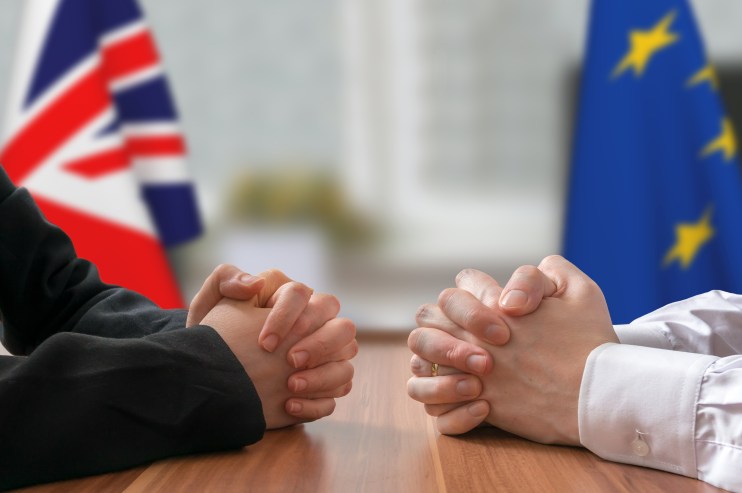
Why Boris should keep no-deal on the table

The British government should not go into Brexit negotiations with the EU unless a no-deal outcome is kept as an option.
Disregarding the rights and wrongs of Brexit, the spread of votes in the June 2016 referendum and the ensuing political shambles, the very basics of any talks aimed at an agreement must ensure that the negotiating team go in fully armed. This would mean they include every outcome – including the ability to walk away.
To back this up, one has only to look at A-level economics and the concept of game theory.
Game theory is concerned with the strategic analysis of competitive positioning between two or more parties. It is a branch of mathematics that has been used successfully in preparation for political and business negotiations, and even war. Economists that promote game theory believe that it can provide the basis of a successful negotiation, as the theory assumes that each party will be rational and strive to achieve the best possible outcome.
In the context of Brexit, game theory is the study of the behaviour of the party that you are going to negotiate with. It would involve preparing your position with countermeasures. So, if you understand that Brexit leaves both sides at a disadvantage, then it is up to each party to negotiate the best possible outcome as they see it, without surrendering too much.
The classic game theory set up is the prisoners’ dilemma. Two prisoners are kept separately, after committing a crime together. Neither knows what the other is thinking as they sweat it out behind bars. Depending on what each prisoner says, or chooses not to say, it could end up in any one of three possible outcomes. First, one could inform on the other – ending up in their immediate release at the expense of the other’s incarceration for a considerable period of time. Second, neither of the prisoners say anything, meaning they both will spend a small amount of time in prison. And finally, they both incriminate each other, each ends up spending a long time inside.
While this goes some way to illustrate possible outcomes, the analogy does not fit with the efforts by Boris Johnson to try to push the EU into agreeing a new deal by the deadline of 31 October. So, we need to look elsewhere for an example that better illustrates the need for the no-deal outcome to be part of the negotiators options to try and achieve an eleventh-hour agreement.
Here, the idea of two speeding cars approaching on a narrow piece of road with ditches on either side works well. Both see each other coming at speed, but neither is willing to stop. They each expect the other to slow down and move aside to allow the other to speed on past. Again, there are three possible outcomes. First, if neither stops (or at least slows down) there will be a calamitous crash sending both parties off the road with dire consequences for each. Second, one car could stop well in advance and allow the other a safe and speedy passage. And finally, both cars could slow down, ensuring each pass safely and that there are no casualties.
If the EU knows that the UK is going into the negotiations without a no-deal outcome, the EU car can safely drive on at speed. The EU knows that the car driven by the UK Brexit negotiators, will steer into the ditch and allow the EU car to pass without changing course. If, however, the EU thinks that there is a chance that the UK – with its no-deal option in the boot – will carry on driving regardless, the chances are that at the last moment the EU will slow down to avoid a crash. In other words, open last-minute negotiations to achieve a deal.
There are very few people who, given the evidence, would wish for either the UK to walk away from Europe, or for Europe to insist on a no-deal outcome. Given the increasingly parlous state of the EU economy, the UK negotiators should take a deep breath and go for it. They might just come out the other side with an arrangement in place that would allow Brexit to happen. One should also bear in mind that this is only the first stage and only once this is agreed can the real work begin.
